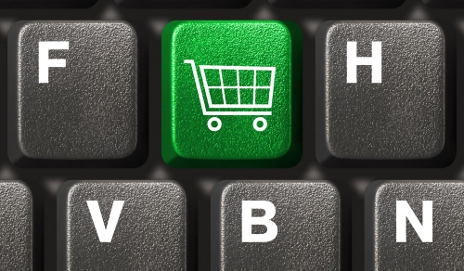Christmas Season is over but most people’s shopping don’t end with the Season. There are so many upcoming reasons to shop again such as Valentine’s Day, Graduation Day, and other ordinary celebrations such as birthdays and weddings.
And just like before Christmas, a lot of people go for online shopping as this is more convenient, easier, and quicker to transact. But before one has to click that “Add To Cart” button, he or she should make sure that computer’s internet browsers, operating systems and security software are up-to-date. The best defense against viruses, malware, and other online threats is a clean computer.
Here are some other ways to protect yourself when shopping online as provided by StaySafeOnline.org:
Check out sellers: Conduct independent research before you buy from a seller you have never done business with. Some attackers try to trick you by creating malicious websites that appear legitimate, so you should verify the site before supplying any information. Locate and note phone numbers and physical addresses of vendors in case there is a problem with your transaction or your bill. Search for merchant reviews.
Make sure the site is legitimate: Before you enter your personal and financial information to make an online transaction, look for signs that the site is secure. This includes a closed padlock on your web browser’s address bar or a URL address that begins with shttp or https. This indicates that the purchase is encrypted or secured. Never use unsecured wireless networks to make an online purchase. (See this sample online shop on Shopee called TipidFashionPH)
Protect your personal information: When making a purchase online, be alert to the kinds of information being collected to complete the transaction. Make sure you think it is necessary for the vendor to request that information. Remember, you only need to fill out required fields on a vendors checkout form. Before providing personal or financial information, check the website’s privacy policy. Make sure you understand how your information will be stored and used.
Use safe payment options: Credit cards are generally the safest option because they allow buyers to seek a credit from the issuer if the product isn’t delivered or isn’t what was ordered. Also, unlike debit cards, credit cards may have a limit on the monetary amount you will be responsible for paying if your information is stolen and used by someone else. Never send cash through the mail or use a money-wiring service because you’ll have no recourse if something goes wrong. Don’t forget to review return policies. You want a no-hassle ability to return items.
Keep a paper trail: Print and save records of your online transactions, including the product description, price, online receipt, terms of the sale, and copies of any email exchange with the seller. Read your credit card statements as soon as you get them to make sure there aren’t any unauthorized charges. If there is a discrepancy, call your bank and report it immediately.
Turn your computer off when you’re finished shopping: Many people leave their computers running and connected to the Internet all day and night. This gives scammers 24/7 access to your computer to install malware and commit cyber crimes. To be safe, turn off your computer when it’s not in use.
Be wary of emails requesting information: Attackers may attempt to gather information by sending emails requesting that you confirm purchase or account information. Legitimate businesses will not solicit this type of information through email. Contact the merchant directly if you are alerted to a problem. Use contact information found on your account statement, not in the email.

Protect Yourself with these STOP. THINK. CONNECT. Tips:
Keep a clean machine: Having the latest security software, web browser and operating system are the best defenses against viruses, malware and other online threats.
Make passwords long and strong: Combine capital and lowercase letters with numbers and symbols to create a more secure password.
Unique account, unique password: Separate passwords for every account helps thwart cybercriminals.
When in doubt, throw it out: Links in email, tweets, posts, and online advertising are often the way cybercriminals compromise your computer. If it looks suspicious, even if you know the source, it’s best to delete or if appropriate, mark as junk email
Get savvy about Wi-Fi hotspots: Limit the type of business you conduct and adjust the security settings on your device to limit who can access your machine.
Protect your Money: When banking and shopping, check to be sure the sites is security enabled. Look for web addresses with “https://” or “shttp://”, which means the site takes extra measures to help secure your information. “Http://” is not secure.
Think before you act:Be wary of communications that implores you to act immediately, offers something that sounds too good to be true, or asks for personal information.
Help the authorities fight cybercrime: Report stolen finances or identities and other cybercrime to the Internet Crime Complaint Center (www.ic3.gov) and to your local law enforcement (National Bureau of Investigation or Securities and Exchange Commission in the Philippines) or state attorney general as appropriate.
Discover business secrets by subscribing to RockToRiches|BurnGutierrez.Com for FREE.
Rock your way to abundance!
#moneyliferocknroll
No download cost! Enjoy Shopee for free! Earn money as a Shopee seller today!
